#afsaneh
Text

به نوازش چشم های تو
واژه هایم جان میگیرند
مرا بنواز به نگاهی
# م.ا (افسانه) #
9 notes
·
View notes
Text
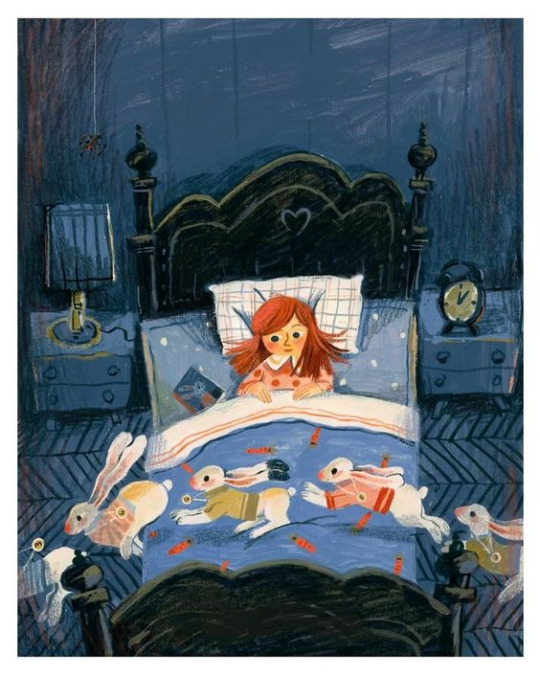
Afsaneh Sanei “I Prefer to Count the Rabbits!”
49 notes
·
View notes
Text
this is very funny that there are so many (*a dozen or so) Afsaneh Paris/Philippa Georgiou ficlets. lesbians just took 2 hot sci-fi milfs who never met and made them bang. big brains! I love this niche within a niche.
#I posted this silly thought on every sm platform#i wanted to check where are my people#afsaneh paris#philippa georgiou#it might be too niche
14 notes
·
View notes
Photo
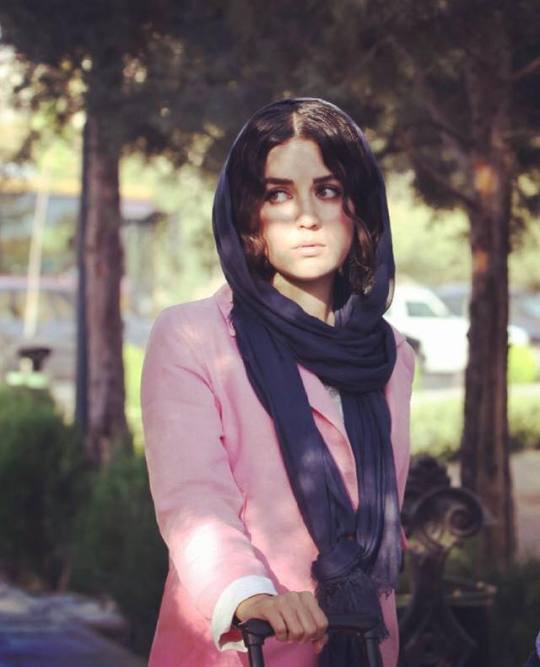
Afsaneh Pakroo 🇮🇷
افسانه پاکرو
afsanehpakroo
9 notes
·
View notes
Quote
Agency does not need a power vacuum to exist. On the contrary, agency would be meaningless outside a matrix of power.
Afsaneh Najmabadi, Women With Mustaches and Men Without Beards
2 notes
·
View notes
Text


@beckheiress
“And do try not to stick your dick in it, Daniel. Shit’s fucked enough already. Thank you. Bye bye, now.” She sang the end into the open line just before hanging up, as if that might make up for the crude way in which she’d talked to...whoever Daniel was. She was not sorry for it. And wouldn’t lose any sleep tonight.
The pad of her index finger came up off the switch hook as a pretty young blonde came in the door of the office. Regardless of whether or not the other female had heard the end of that particularly colorful conversation, Afsaneh Madani, Senator for the great state of Montana, made no attempt to address it. A perfectly manicured eyebrow arched in solitary. A voice like liquid velvet, deep and laid over a smoker’s gravel, with a heavy Indian or Middle Eastern type accent, came back and filled the room. “Well? I am a busy woman and I don’t have all day, darling... Perhaps you’d like to sit and talk about whatever the bloody fuck you’d like to discuss? Any time now. And if not, the least you can do is stop staring at me like you’ve never seen a vulgar brown person before... I understand we’re like unicorns, but now that you’ve seen one...”
2 notes
·
View notes
Text
ASSESSING REGISTRIES TO SUPPORT DRUG REGULATORY DECISION-MAKING
The Cures Act of the 21st Century, enacted on December 13, 2016, aimed to expedite the development of medical products and facilitate quicker and more efficient delivery of innovations and advancements to patients in need. One of its additions was section 505F to the Federal Food, Drug, and Cosmetic Act (FD&C Act).
In compliance with the stipulations in section 505F, the FDA established a framework for the Real-World Evidence (RWE) Program, which assesses the potential utilization of RWE to aid in the approval of a new indication for a drug previously sanctioned under section 505(c) of the FD&C Act.
Read more at : https://lnkd.in/g4bgzuEK

1 note
·
View note
Text
Shamaeel Ansari Latest Eid Edition Afsaneh 2022
Shamaeel Ansari Latest Eid Edition Afsaneh 2022

View On WordPress
#2022 up to date fashion#Afsaneh Eid Edit by Shamaeel Ansari#outfits by Shamaeel Ansari#Shamaeel Ansari 2022#Shamaeel Ansari collection Afsaneh 2022#Shamaeel Ansari collections 2022#Shamaeel Ansari designs 2022#Shamaeel Ansari Eid Edition#Shamaeel Ansari fashion 2022#Shamaeel Ansari Latest dresses#Shamaeel Ansari prints#Shamaeel Ansari vogue#Shamaeel Ansari wardrobe#vacation season#wedding season#womens body shapes#womens kinds
0 notes
Text
Shamaeel Ansari Latest Eid Edition Afsaneh 2022
Shamaeel Ansari Latest Eid Edition Afsaneh 2022

View On WordPress
#2022 up to date fashion#Afsaneh Eid Edit by Shamaeel Ansari#outfits by Shamaeel Ansari#Shamaeel Ansari 2022#Shamaeel Ansari collection Afsaneh 2022#Shamaeel Ansari collections 2022#Shamaeel Ansari designs 2022#Shamaeel Ansari Eid Edition#Shamaeel Ansari fashion 2022#Shamaeel Ansari Latest dresses#Shamaeel Ansari prints#Shamaeel Ansari vogue#Shamaeel Ansari wardrobe#vacation season#wedding season#womens body shapes#womens kinds
0 notes
Text
Author Spotlight: Talia Bhatt
We're excited to highlight Talia Bhatt, author of the current club read Dulhaniyaa. Read on to hear how her identity and experiences informed her writing, and how queer love is a jailbreak.
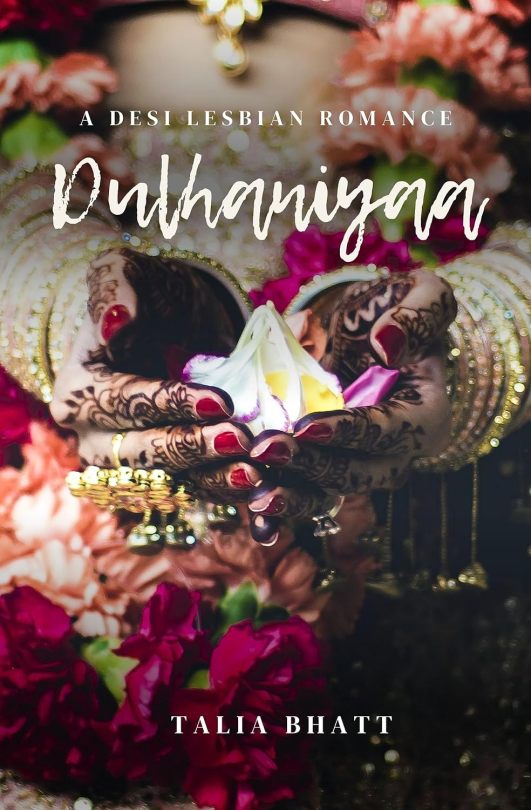
“Desi trans lesbian” feels, sometimes, like an ephemeral identity.
I am situated nowhere transhistorically and barely transculturally, having to borrow the language, social trappings, and forms of identification of the nation(s) that colonized and impoverished mine to even express my embodiment and positionality coherently. In a world where Afsaneh Najmabadi can pose the question “Is any one of you a lesbian?” to a room full of Iranian transsexual women and get blank stares, as she relates in Professing Selves, or where Deepa Mehta notes in her groundbreaking lesbian romance Fire that Hindi lacks even a word to express the concept of a woman loving another intimately, romantically, carnally, I am unmoored and unfixed, an anomaly because I dare to imagine my transsexuality independent from men.
“Woman are for men”, assumes every culture with harsh patriarchal contradictions—which does not entirely exclude the West—and trans women doubly so, since the abhorrence of non-heterosexual modes of living and social organization leads many from cultures like mine to presume that a woman would only transition to be with a man. A profound loneliness dogs my very existence, alerting me to the wispy shadows of a shrouded past that barely had a record of women like me prior to the midpoint of the 20th Century, only whispers and rumors and sensationalist gossip scrawled in academic journal by Esther Newton, alluding to the idea of a “man” that, having availed of hormones and surgical interventions, now sleeps with lesbians—the scandal.
No ancestors that are mine to claim.
Dulhaniyaa is not a particularly melancholy book, though a certain pensiveness pervades the opening chapters. There a story within the story written in subtext, in allusions and word choices and snippets of dialogue, that Esha and Billu and Dolly and others are aware of: my homeland, my motherland, my culture and my nation and my state—it is not a place for queer women. It is certainly, emphatically, not a place for a trans woman who fancies herself still attracted to other women, or even indelibly non-binary in a way. Women like us have no names, no pasts, and almost certainly no futures within the narrow confines of the constructed and stifling heterosexual hegemony.
A reviewer was kind enough to sum up Dulhaniyaa for me better than I ever could, stating triumphantly that “Queer love is a jailbreak.” It’s a quote that has stuck with me both for how simply it states a core theme that I certainly labored to convey without necessarily consciously meaning to, as well as for how profoundly vast and unencompassable the prison I find myself in is. My shackles are Time and Language itself, my cell the land I was born in, my wardens its people. I am a refugee in a sense that many, many queer and especially trans people tend to be, evicted and disowned and erased from hearth and homeland.
I wrote Dulhaniyaa because someone broke me out of that cell. She saw the woman I was as well as the woman I could be, and helped me bridge the gap between the two. She is now my wife.
Queer love is a jailbreak. Get your pickaxes ready.
#wlw books#booklr#lgbt books#contemporary#book recs#sapphic books#diverse books#desi#bollywood#trans author#guest post
42 notes
·
View notes
Text
"It's important that we, as historians or as queer people, don't treat gender and sexuality as two things that used to be entangled but have now been teased apart. There can be a tendency in white queer circles to frame this as a narrative of 'progress' in which we've moved from an outdated past where all queer relationships had to have 'a man and a woman', to a liberated present in which sexuality has been unhooked from gender and queer relationships are characterized by sameness and mutuality. But that narrative doesn't represent everybody's experience. If we frame the entanglement of gender and sexuality as a relic of an unenlightened past, we erase the experiences of many people -often, disproportionately, working-class people and people of color. There are plenty of examples of individuals, groups and cultures for whom it's not accurate to talk about 'gender' and 'sexuality' as separate concepts or experiences. Ethnographer David Valentine has worked and spoken at length with Black and Latine people in New York who understand themselves primarily as gay rather than as trans. Afsaneh Najmabadi spoke to a group of trans people in Iran for whom the idea of a trans woman being a lesbian didn't make any sense: for them, trans people are inherently heterosexual, and transition is something you do in part to be able to live as one half of a straight couple. Social scientist Deborah P. Amory has interviewed groups of mashoga, people living in a city (unnamed for their safety) on the coast of East Africa, who wear a mixture of male-coded and female-coded clothing, use female names, and often work in professions associated with women. They describe their femininity as primarily motivated by attracting men; they are penetrated during sex, and their AMAB partners are seen as straightforwardly male (though in their native Swahili, all pronouns are gender-neutral)."
-Before We Were Trans: A New History of Gender by Kit Heyam
39 notes
·
View notes
Text
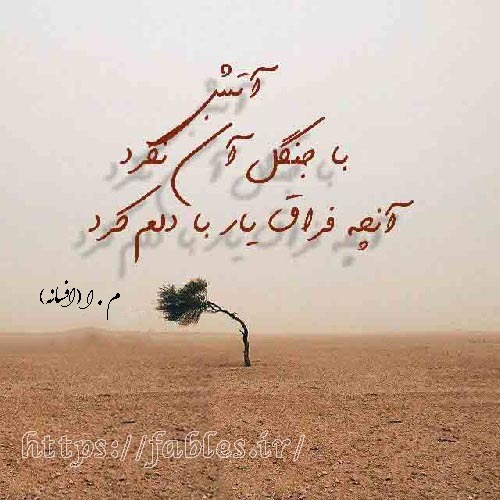
آتش
با جنگل آن نکرد
آنچه فراق یار
با دلم کرد
م . ا (افسانه)
8 notes
·
View notes
Text
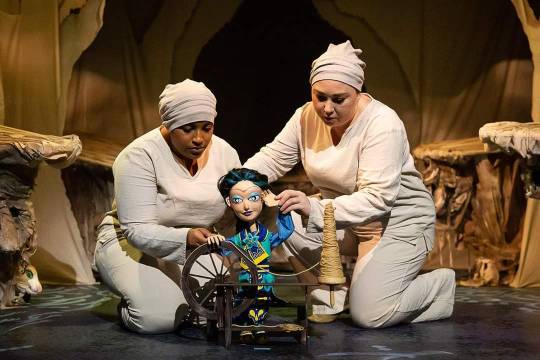
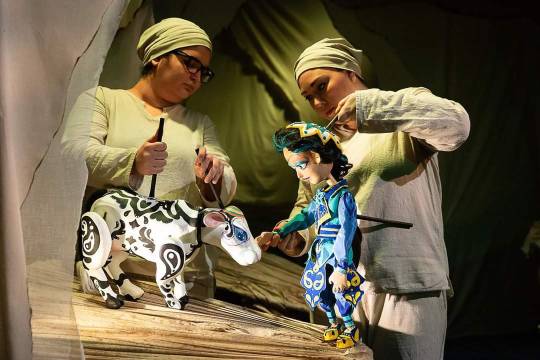


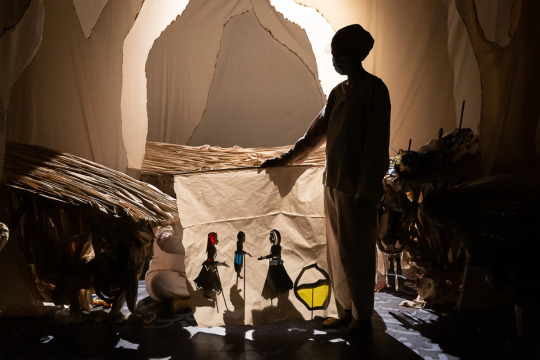

Last Summer, I worked as a puppet designer for The Moonlit Princess (Mah Pishooni), a Persian folktale directed by Afsaneh Aayani. The show was held at Rec Room in Houston and was funded by the Houston Arts Alliance.
To express the amount of time & effort that goes into a production like this is...insurmountable. As someone who is primarily used to working alone, I surprisingly enjoy being part of a crew and the collaborative efforts that help turn an idea into reality. It's an experience that I don't take for granted.
Also, it was my official debut as a puppet designer--that's pretty darn neat!
Here's to more opportunities to weave something beautiful with a group of passionate people & a unique vision. ♥
(Photography by Lynn Lane)
37 notes
·
View notes
Text
2022 reading list >:)
fiction:
charlotte brontë, jane eyre
n.k. jemisin, the stone sky
victor hugo, les misérables
susanna clarke, piranesi
james baldwin, giovanni's room
tamsyn muir, gideon the ninth
tamsyn muir, harrow the ninth
emily brontë, wuthering heights
ursula k le guin, the left hand of darkness
oscar wilde, the picture of dorian gray
isaac fellman, dead collections
joan lindsay, picnic at hanging rock
shirley jackson, dark tales
gretchen felker-martin, manhunt
herman melville, moby dick
octavia butler, parable of the sower
shola von reinhold, lote
larissa lai, the tiger flu
alison rumfitt, tell me i'm worthless
julia armfield, our wives under the sea
shirley jackson, the haunting of hill house
miguel de cervantes, don quixote
toni morrison, the bluest eye
isaac babel, odessa stories
alexandre dumas, the count of monte cristo
daphne du maurier, rebecca
clark ashton smith, the dark eidolon and other fantasies
rivers solomon, the deep
akwaeke emezi, freshwater
e.m. forster, a room with a view
vladimir nabokov, lolita
ayse papatya bucak, the trojan war museum and other stories
sheridan le fanu, carmilla
e.m. forster, maurice
tamsyn muir, nona the ninth
vladimir nabokov, pale fire
shirley jackson, we have always lived in the castle
jorge luis borges, fictions
henry james, the turn of the screw
tamsyn muir, undercover
ling ma, severance
orhan pamuk, the museum of innocence
shirley jackson, hangsaman
nonfiction:
vijay prashad, no free left: the futures of indian communism
eduardo galeano, open veins of latin america
hakim adi, pan-africanism: a history
paulo freire, pedagogy of the oppressed
a rainbow thread: an anthology of queer jewish texts ed. noam sienna
kwame nkrumah, africa must unite
vijay prashad, red star over the third world
norm finkelstein, the holocaust industry
robin wall kimmerer, braiding sweetgrass
vladimir lenin, the state and revolution
saidiya hartman, wayward lives, beautiful experiments
john aberth, from the brink of the apocalypse
erik butler, metamorphoses of the vampire in literature and film
amin maalouf, the crusades through arab eyes
anandi ramamurthy, black star: britain's asian youth movements
christopher chitty, sexual hegemony
shakespearean gothic, ed. christy desmet and anne williams
cervantes' don quixote: a casebook, ed. roberto gonzález echevarria
edward said, culture and imperialism
emily hobson, lavender and red: liberation and solidarity in the gay and lesbian left
audre lorde, zami: a new spelling of my name
ghassan kanafani, on zionist literature
afsaneh najmabadi, women with moustaches and men without beards: gender and sexual anxieties of iranian modernity
jamie berrout, essays against publishing
beverley bryan, stella dadzie, suzanne scafe, heart of the race: black women's lives in britain
jamaica kincaid, a small place
friedrich engels, socialism: utopian and scientific
poetry:
trish salah, lyric sexology
melissa range, scriptorium
wendy trevino, cruel fiction
june jordan, selected poems
#.txt#i skipped a few that were just like. very famous plays or whatever but!#you see what i mean abt how much i need to Read More Poetry :(#also: posts that make you think about the inadequacy of the fiction/nonfiction distinction
127 notes
·
View notes
Text
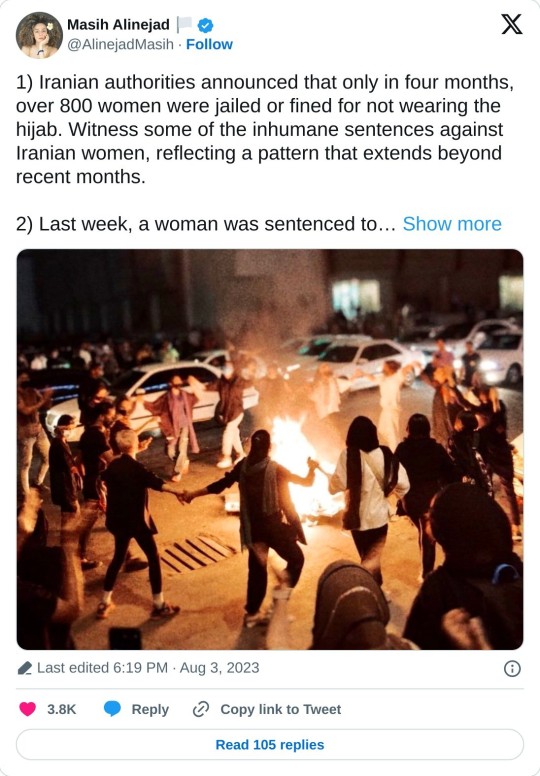
"1) Iranian authorities announced that only in four months, over 800 women were jailed or fined for not wearing the hijab. Witness some of the inhumane sentences against Iranian women, reflecting a pattern that extends beyond recent months.
2) Last week, a woman was sentenced to wash corpses for a month as public service in Tehran for removing her hijab in a car.
3) Afsaneh Bayegan, a film and TV actress, was sentenced to attend psychological centers for protesting compulsory hijab. She must seek treatment for a "mental illness" and prove her mental health at the end.
4) Sepideh Rashno, a writer and editor, was arrested after a clash over compulsory hijab. Her suspension order requires her to write a 110-page research paper on literature and harm to public opinion.
5) Yalda Moayeri, a news photographer, was sentenced to two months of mortuary work for photographing protests in Iran. She proudly stated she'll undertake the work where photographing people's protests is forbidden.
6) The Islamic Republic is furious with women for defying Islamic Sharia laws, harassing them daily. Despite this, women continue to fight against the Islamic Republic's gender apartheid every day.
#WomanLifeFreedom"
19 notes
·
View notes
Text
The Stuff I Read in October 2023
Stuff I Extra Liked is Bold
Books
Women with Mustaches and Men without Beards, Afsaneh Najmabadi
Network Effect, Martha Wells
Fugitive Telemetry, Martha Wells
Gateway, Frederik Pohl
A Call to Arms: Iran's Marxist Revolutionaries, Ali Rahnema
Manga (mostly yuri)
Aoi Hana / Blue Flowers, Takako Shimura
Kekkon Aite no Jouken ni Perfect datta no wa Shokuba no Kouhai Joshi deshita / Mr. Right Turned Out To Be A Younger Woman, Kozumi Miura
Tokidoki kaette kuru on'na tomodachi no hanashi / My Lady Friend Who Visits Now and Again, Sumiko Arai
She Loves to Cook and She Loves to Eat Vol 3, Sakaomi Yuzaki
Double House, Nanae Haruno
Fujouri na Atashitachi / An Absurd Relationship, Jin Takemiya
The Girls' Arcadia, Yatosaki Haru
Recipe for Arcadia, Yatosaki Haru
Short Fiction (all SF)
17776, Jon Bois [link]
The Merchants of Venus, Frederik Pohl
The Merchants of Venus, A. H. Phelps Jr.
The Erasure Game, Yoon Ha Lee
Compulsory, Martha Wells
Obsolescence, Martha Wells
Home: Habitat, Range, Niche, Territory, Martha Wells
The Shoe Shop Jinn, Sakina Hassan [link]
Earth-747, Saud Ahmed [link]
Communism, History, Politics
The Palestinian Left Will Not Be Hijacked – A Critique of Palestine: A Socialist Introduction - Viewpoint Magazine, Samar Al-Saleh & L.K. [Viewpoint Magazine]
The Algerian War: Cause Célèbre of Anticolonialism, Malika Rahal [JSTOR]
Socialism for the Welsh People, Gareth Miles & Robert Griffiths
Soviet time capsules: messages from the past with lessons to teach us in 2017, Sasha Raspopina [New East Archive]
No Human Being Can Exist, Saree Makdisi [n+1]
The Other Nuremberg Trials, Seventy-Five Years On, Erica X Eisen [Boston Review]
The 1932 Harvest and the Famine of 1933, Mark B. Tauger [JSTOR]
Political Islam in the Service of Imperialism, Samir Amin [link]
Dismantle the ADL [link]
Women and Men, Cloth and Colonization: The Transformation of Production-Distribution Relations among the Baule, Mona Etienne [JSTOR]
Iranica
The Defender: Waiting for the revolution in Tehran, Nargol Aran [Point Magazine]
Divided by a Common Tongue: Exclusionary Politics of Persian-Language Pedagogy, Aria Fani [link]
The Necessity of Armed Struggle and Refutation of the Theory of “Survival”, Amir Parviz Pooyaan [pdf on marxists dot org]
Queer Stuff/Feminism (broadly construed)
Cultural Feminism: Feminist Capitalism and the Anti-Pornography Movement, Alice Echols [JSTOR]
Against the "Prison/Psychiatric State": Anti-violence Feminisms and the Politics of Confinement in the 1970s, Emily Thuma [JSTOR]
"Some Could Suckle over Their Shoulder": Male Travelers, Female Bodies, and the Gendering of Racial Ideology, 1500-1770, Jennifer L. Morgan [JSTOR]
Collective Memory and the Transfeminist 1970s: Toward a Less Plausible History, Finn Enke [DOI]
Racial-Class Paternalism and the Trojan Horse of Anti-transmasculinity, Nsámbu Za Suékama [Medium]
Trans Misogyny in the Colonial Archive: Re-Membering Trans Feminine Life and Death in New Spain, 1604–1821, Jamey Jesperson [DOI]
Other
The Establishment of Scientific Semantics, Rudolf Carnap
On What There Is, Willard V. Quine [JSTOR]
On the Ancestral Plane: Crip Hand Me Downs and the Legacy of Our Movements, Stacey Milbern [link]
Megastructures, Superweapons and Global Architectures in Science Fiction Computer Games, Mark R. Johnson [link]
#reading prog#yeah yeah i'm getting back on the strang linalg in november the last month has kept me busy with teaching#a day late bc it's been busy as hell
19 notes
·
View notes